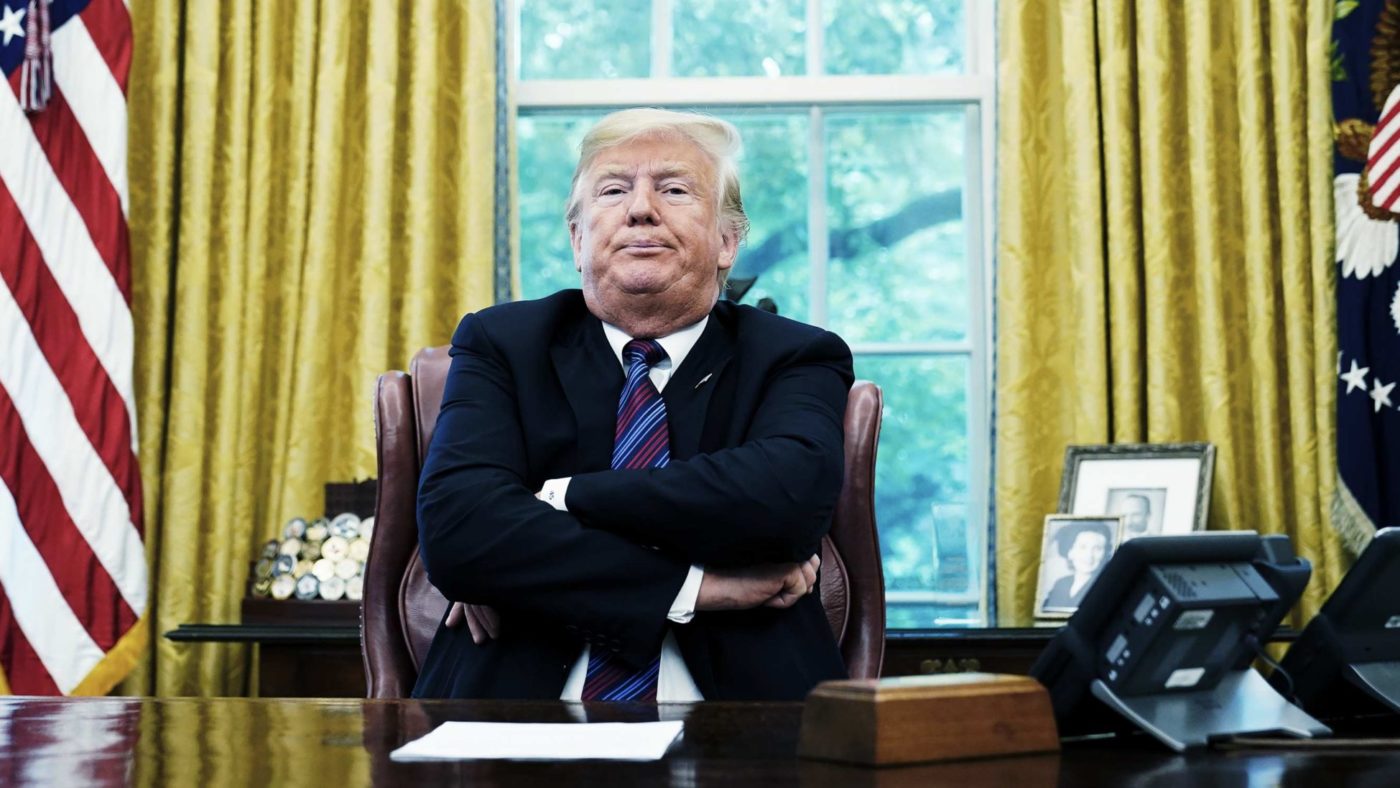Here’s a paradox. Donald Trump arrived in office riding a wave of popular backlash against free trade, bashing NAFTA, WTO, and TPP. But today, it is hard to see evidence of that backlash. According to the Chicago Council on Global Affairs, “record percentages of Americans now say that trade is good for the US economy (82 per cent), consumers like you (85 per cent), and creating jobs in the United States (67 per cent).”
And, for all his bluster and anti-trade rhetoric, President Trump did not ditch NAFTA. Instead he made minor (though unhelpful) tweaks the agreement’s rules of origin for cars and rebranded the scheme as the “United States-Mexico Trade Agreement”. “We’ll get rid of the name NAFTA,” he stressed. Just last month, the Trump administration scrapped the idea of hitting Europeans with additional tariffs after the EU’s vague promise to import more American soybeans and liquefied natural gas.
What is going on? Are Americans finally understanding the importance of free trade? And is Trump himself a closeted free-trader, as my colleague Marc Thiessen once suggested?
The reality is more prosaic, both when it comes to public opinion and to Trump’s own views on trade policy. After decades of research on “rational ignorance” and “rational irrationality”, it would be fanciful to believe that voters are finally seeing the light on a subject as esoteric as trade – or that they even hold informed, consistent views on it.
More plausibly, as political scientists Christopher H. Achen and Larry M. Bartels argue, voters adopt the views on public policy held by their preferred the candidates and parties. And the choice of the latter is done overwhelmingly on grounds of perceived collective cultural and political identities – not on the basis of studying policy platforms.
After years of Trump’s rhetorical attacks on NAFTA, Republicans (but not the Democrats) perceive it as benefiting Mexico more than the United States. The ongoing reversal on Russia follows the same pattern: 40 per cent of Republicans – traditionally the more hawkish voter group – now see Russia as an ally of, or friendly towards, the United States.
If unprecedented numbers of Americans are embracing free trade, it is not because they have come to appreciate the principle of comparative advantage. They are doing so mostly because Trump is a uniquely unpopular president and, by extension, so are his views on trade.
True, the Chicago Council poll shows a large increase in support for trade even among Trump-leaning Republicans. But Trump himself is not advocating autarky but “fair” trade, which to Trump means one not involving trade deficits. Furthermore, other polls suggest that Trump has managed to erode Republicans’ long-standing support for free-trade agreements (while boosting support for them among Democratic voters).
Trump’s own views on trade are rudimentary but consistent: he sees trade relations as a zero-sum game and trade deficits as an indication of being on the losing end of that game. What is tempering the administration’s policy, other than the advisers and economists who know better, is the President’s mentality of a reality-show host, which values grand gestures, branding, and photo-ops far more than substance.
In the meantime, serious damage to the world’s trading system is well underway, as the current crisis over the WTO’s Appellate Body illustrates. Crippling or destroying countries’ ability to appeal panel decisions would make the WTO much less valuable to its members. And, as an aside, if the British government is half-serious about the “WTO”, or “no-deal” option for its future trading relationship with the EU, it ought to be up in the arms trying to stop the United States from undermining the multilateral trading system.
It is entirely conceivable (though not certain) that Trump will succeed in reshaping the Republican Party in his own image: protectionist, isolationist, built around a narrow, overwhelmingly white and non-urban coalition of voters. Such a party would be an odd vehicle for free-market ideas. Alas, in the years to come, it is also more likely than not that the Democratic Party will continue toying with ideas of “democratic socialism” and identity politics, making it also less-than-perfectly attuned to ideas of free trade and economic openness.
In the end, it is political leadership that matters, not swings in public opinion. And if neither of the two parties start making the case for free trade, then the cause will be defenceless for the foreseeable future.


